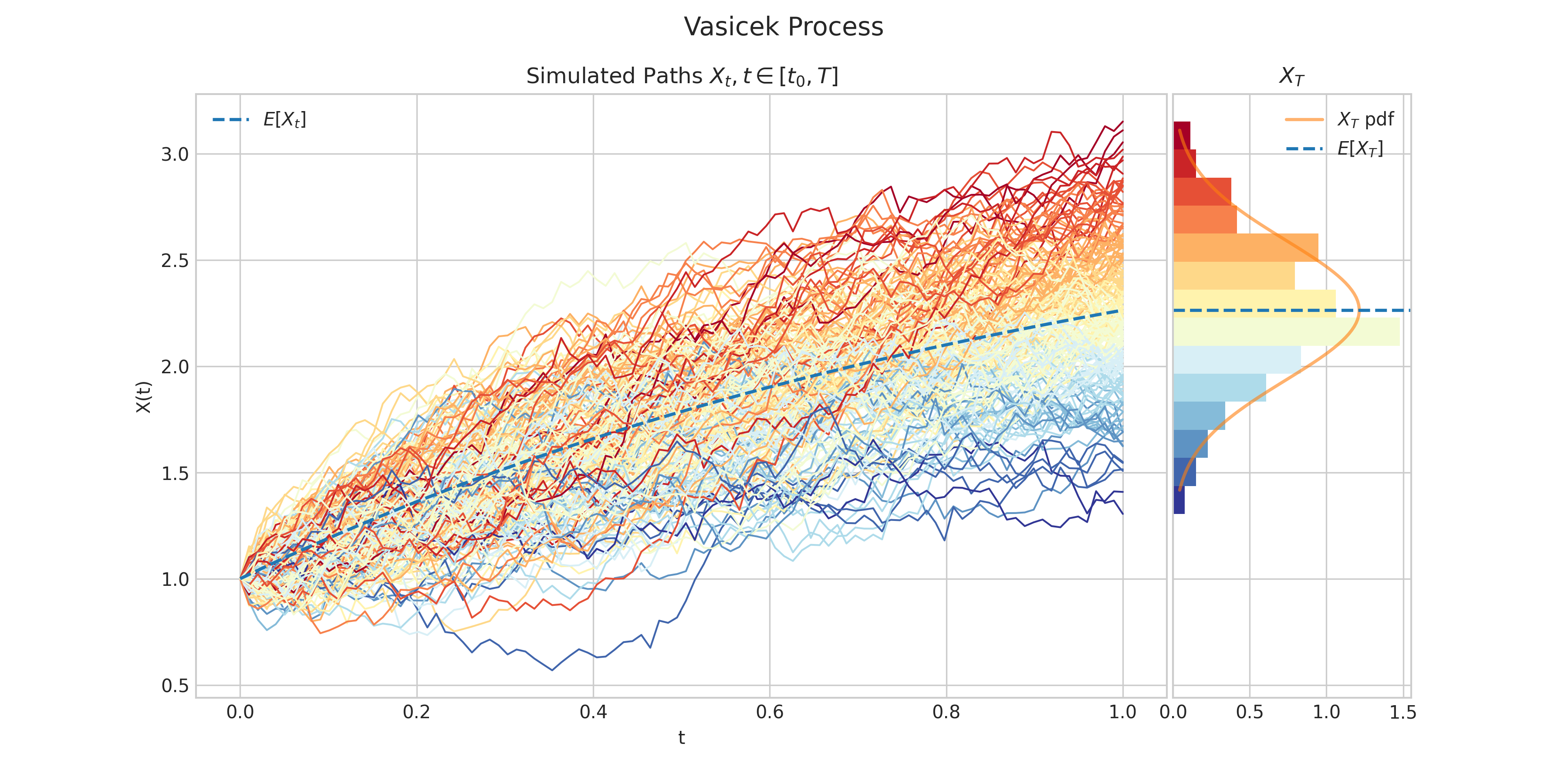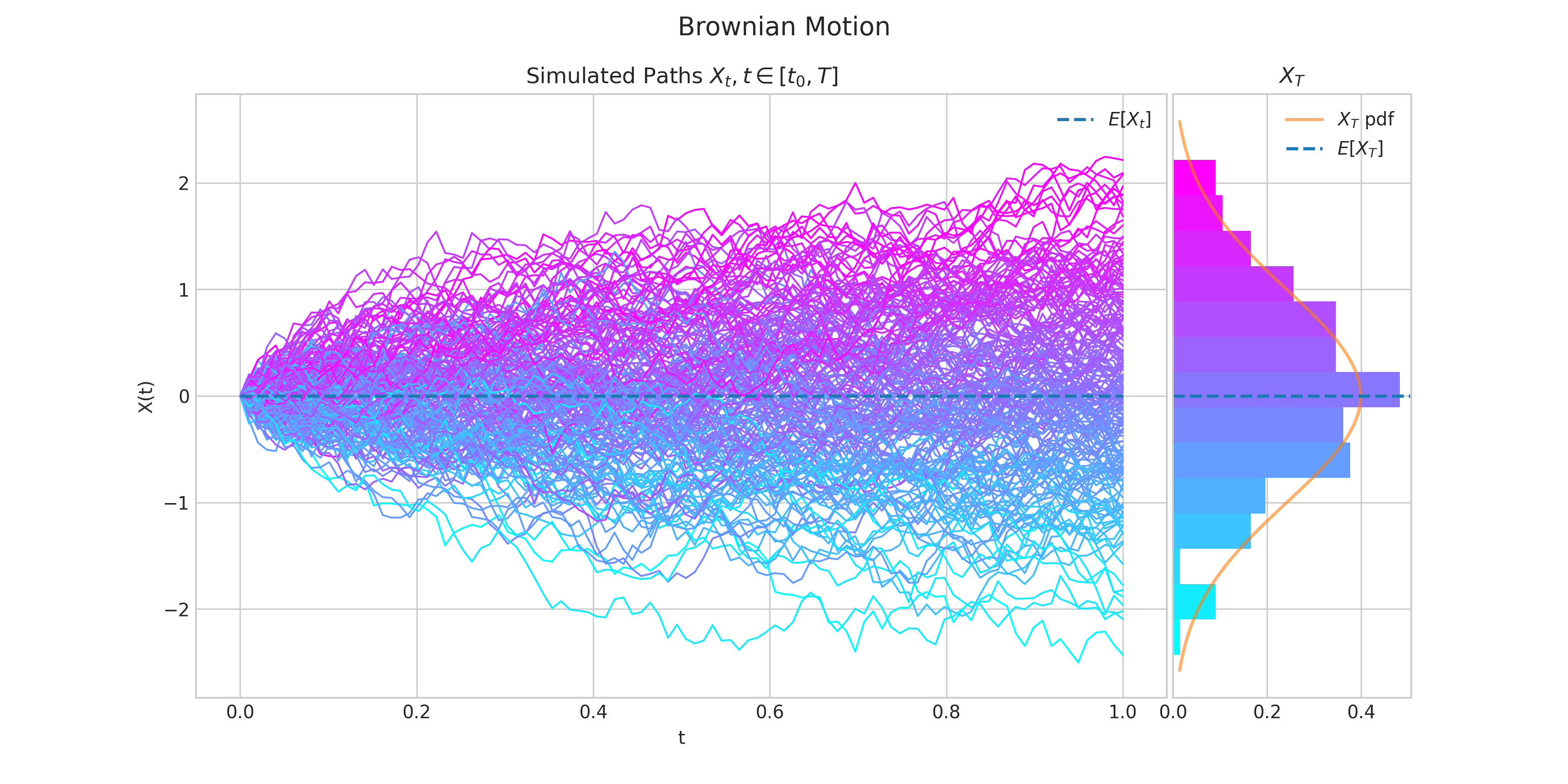Aleatory Save
📦 Python library for Stochastic Processes Simulation and Visualisation
aleatory
Overview
The aleatory (/ˈeɪliətəri/) Python library provides functionality for simulating and visualising stochastic processes. More precisely, it introduces objects representing a number of continuous-time stochastic processes $X = (X_t : t\geq 0)$ and provides methods to:
- generate realizations/trajectories from each process —over discrete time sets
- create visualisations to illustrate the processes properties and behaviour

Currently, aleatory supports the following processes:
- Brownian Motion
- Brownian Bridge
- Brownian Excursion
- Brownian Meander
- Geometric Brownian Motion
- Ornstein–Uhlenbeck
- Vasicek
- Cox–Ingersoll–Ross
- Constant Elasticity
- Bessel Process
- Squared Bessel Processs
Installation
Aleatory is available on pypi and can be installed as follows
pip install aleatory
Dependencies
Aleatory relies heavily on
-
numpyfor random number generation -
scipyandstatsmodelsfor support for a number of one-dimensional distributions. -
matplotlibfor creating visualisations
Compatibility
Aleatory is tested on Python versions 3.8, 3.9, 3.10, and 3.11
Quick-Start
Aleatory allows you to create fancy visualisations from different stochastic processes in an easy and concise way.
For example, the following code
from aleatory.processes import BrownianMotion
brownian = BrownianMotion()
brownian.draw(n=100, N=100, colormap="cool", figsize=(12,9))
generates a chart like this:

For more examples visit the Quick-Start Guide.
If you like this project, please give it a star! ⭐️
Thanks for Visiting! ✨
Connect with me via:
- 👾 Personal Website

